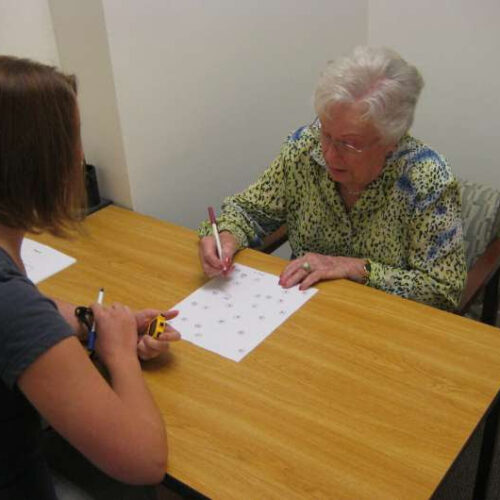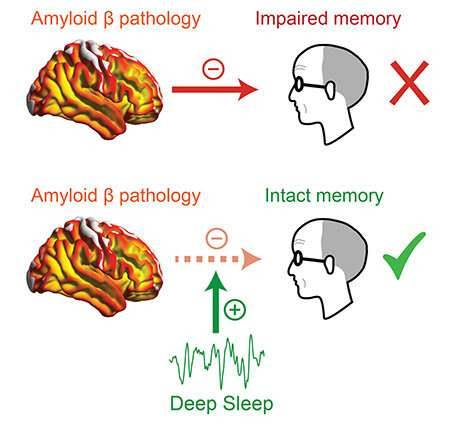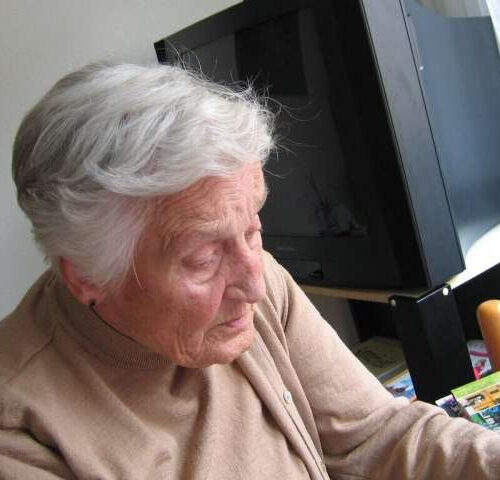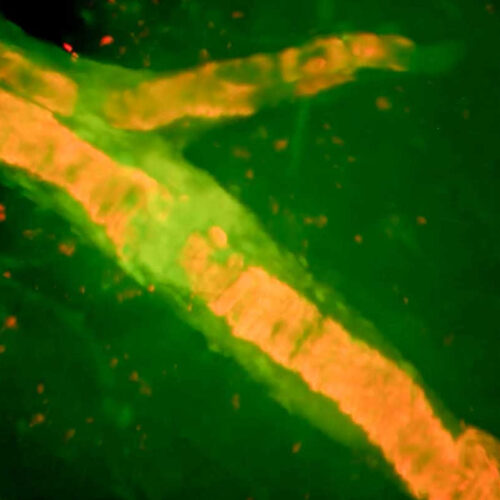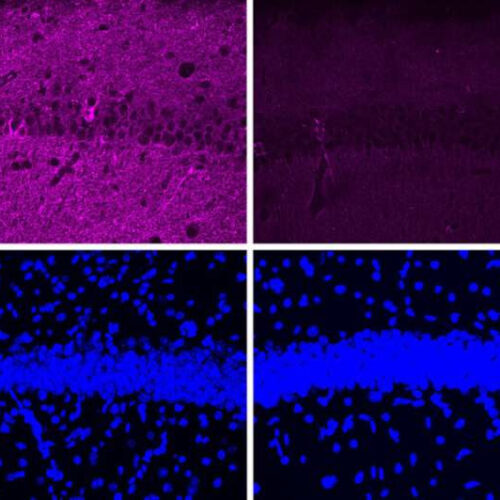by University of California, Irvine The 90+ Study, one of the largest studies of its kind in the world, used cognitive assessment test scores from some of the more than 2,000 participants enrolled. The project has produced several significant findings regarding cognitive function, health and lifestyle habits in the oldest-old population information obtained during life. Credit:...
Category: <span>Alzheimer’s</span>
Gamma frequency tactile stimulation can reduce Alzheimer’s disease pathology and symptoms
Reviewed by Lily Ramsey, LLM May 18 2023 Evidence that non-invasive sensory stimulation of 40 Hz gamma frequency brain rhythms can reduce Alzheimer’s disease pathology and symptoms, already shown with light and sound by multiple research groups in mice and humans, now extends to tactile stimulation. A new study by MIT scientists shows that Alzheimer’s model mice...
A self-administered mobile app to detect Alzheimer’s disease using speech data
by University of Tsukuba Credit: Sergey Nivens/Shutterstock Alzheimer’s disease (AD) is the most common form of dementia. It is important to start intervention from an early stage, e.g., the mild cognitive impairment (MCI) stage, to prevent or delay the progression of AD. For the early detection of AD and MCI, there is a growing need to...
Study provides evidence that breathing exercises may reduce Alzheimer’s risk
by Constance Sommer, USC Leonard Davis School of Gerontology Credit: Unsplash/CC0 Public Domain The exercise was simple: inhale for a count of five, then exhale for a count of five. Do that for 20 minutes, twice a day, for four weeks. These brief breathing sessions had significant impacts: Volunteers’ heart rate variability increased during each exercise period...
Deep sleep may mitigate Alzheimer’s memory loss, research shows
by Jason Pohl, University of California – Berkeley In people with similar amounts of beta-amyloid protein deposits, more deep sleep corresponded with improved memory function. Credit: Matthew Walker A deep slumber might help buffer against memory loss for older adults facing a heightened burden of Alzheimer’s disease, new research from the University of California, Berkeley, suggests. Deep sleep,...
Passing the sniff test: Can we train our brain to boost smell and memory?
by Deakin University Credit: CC0 Public Domain A new study is investigating whether learning to remember smells can boost memory more broadly and reduce the risk of dementia. The research, led by Dr. Alex Bahar-Fuchs from Deakin University’s School of Psychology, builds on a new body of evidence that shows training our memory for smells can improve brain...
Alzheimer’s: Could the brain’s glucose metabolism pave the way for new treatments?
How neurons consume and metabolize glucose could hold the key to new treatments for Parkinson’s and Alzheimer’s disease. Javier Zayas Photography/Getty Images Researchers investigated the glucose uptake and glucose metabolism in neurons. They found that neurons metabolize glucose themselves and that glucose metabolism is crucial for proper neuronal function. Further studies are needed to see whether...
Clinical trial participant’s autopsy and brain exam stoke Alzheimer’s drug fears
13 APR 2023 8:00 AM BY CHARLES PILLER The brain of a woman who died after receiving a new Alzheimer’s disease drug shows amyloid (orange) lining blood vessels and a site where a vessel ruptured and bled (yellow-green). LISSA VENTURA-ANTUNES A full autopsy and detailed examination of the brain of a 79-year-old Florida woman who...
MIT scientists discover ‘remarkable’ new way to reverse Alzheimer’s — as previous breakthrough drug found to slow disease under fire after causing death of trial participant
By CAITLIN TILLEY, HEALTH REPORTER FOR DAILYMAIL.COM UPDATED: 14:24 EDT, 14 April 2023 A new way to reverse Alzheimer’s has been discovered by scientists at the Massachusetts Institute of Technology (MIT) — a major breakthrough with ‘dramatic’ results. The researchers used a peptide, or string of amino acids, to interfere with an enzyme that is typically overactive in the brains of people with...
A new peptide may hold potential as an Alzheimer’s treatment
by Anne Trafton, Massachusetts Institute of Technology In the brains of mice treated with the new peptide (two right panels), many fewer Tau proteins (stained purple) are seen in the top right. The left panels show neurons from mice treated with a scrambled version of the peptide. In the two bottom panels, DNA in the cell...

